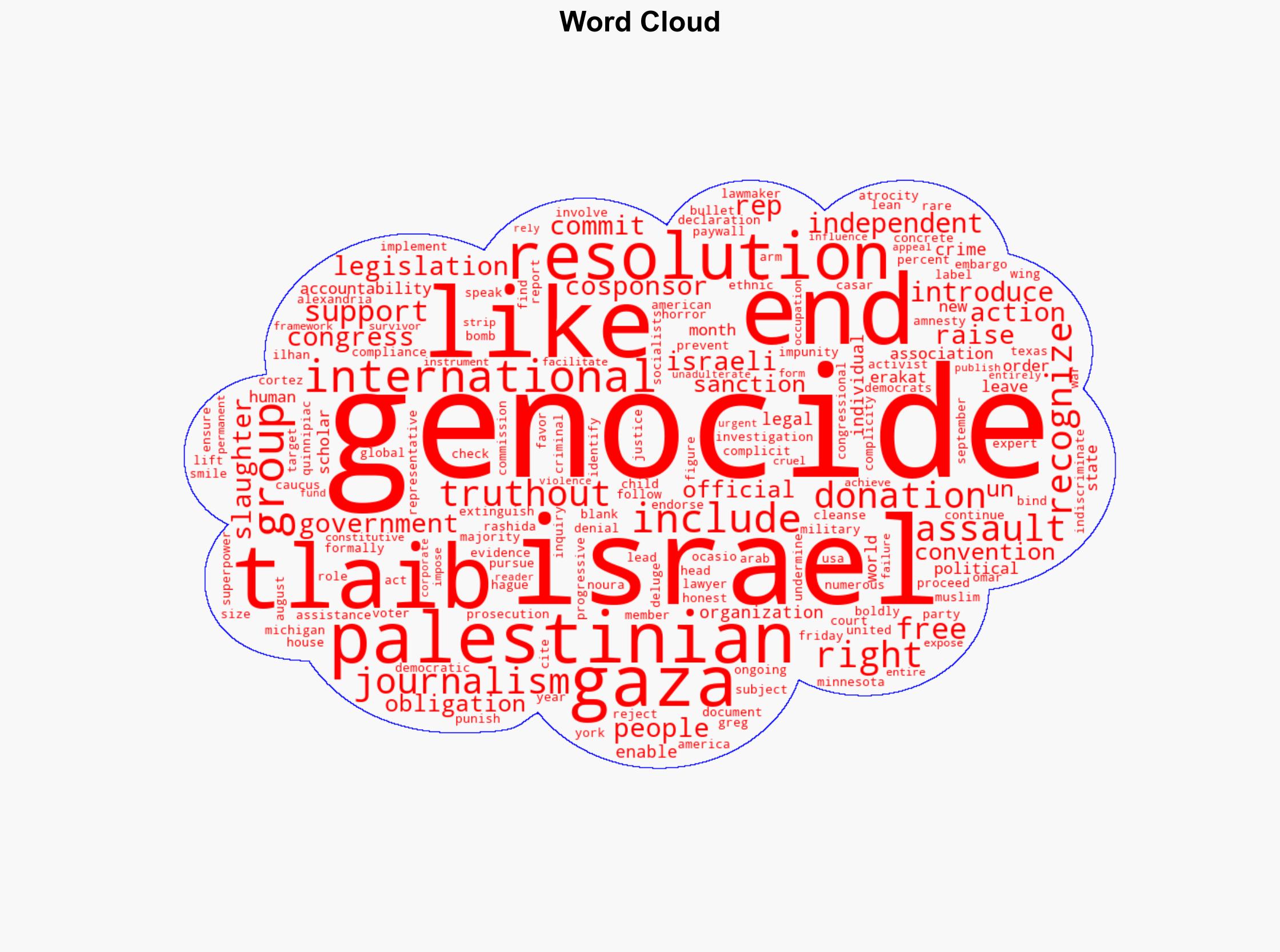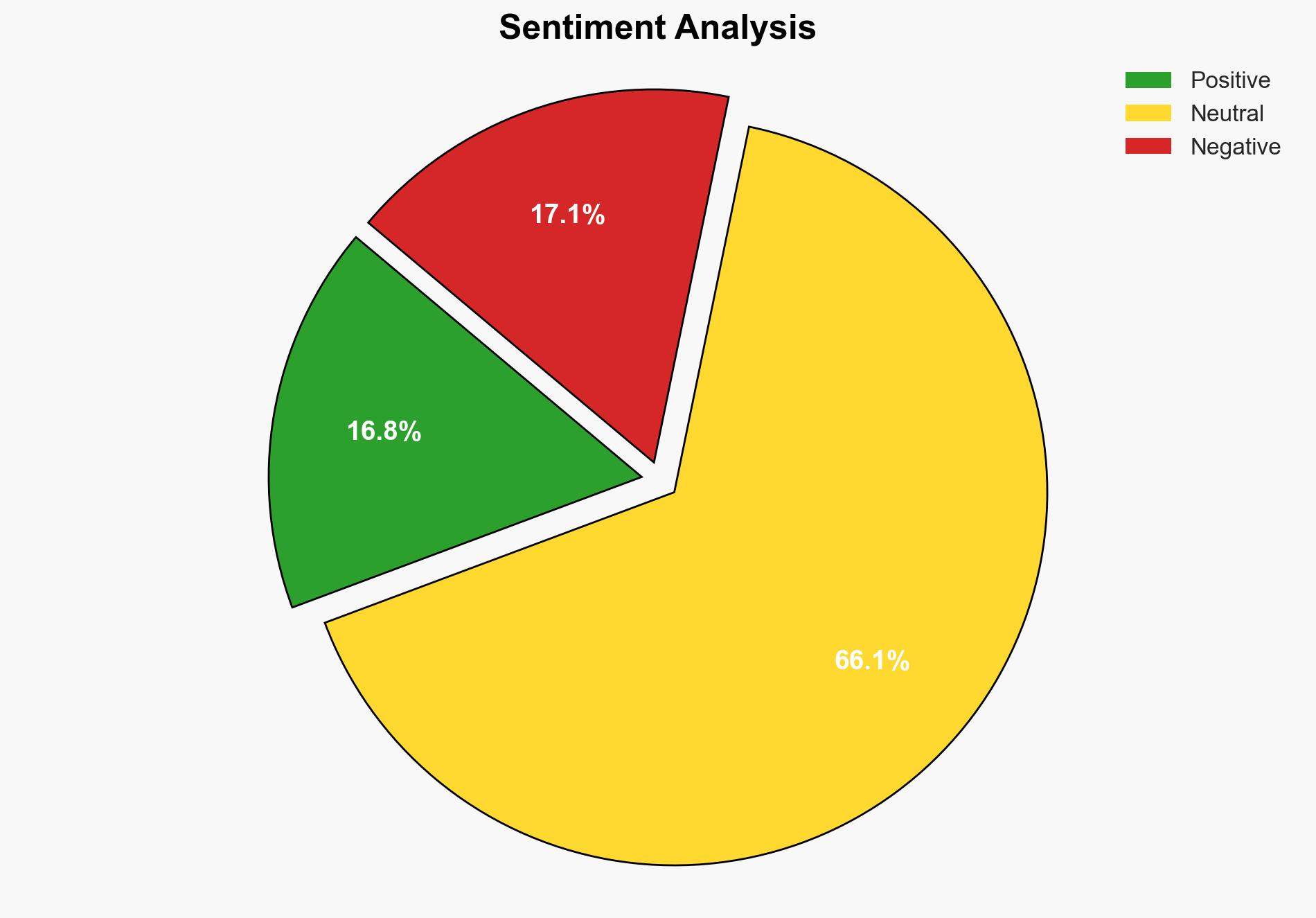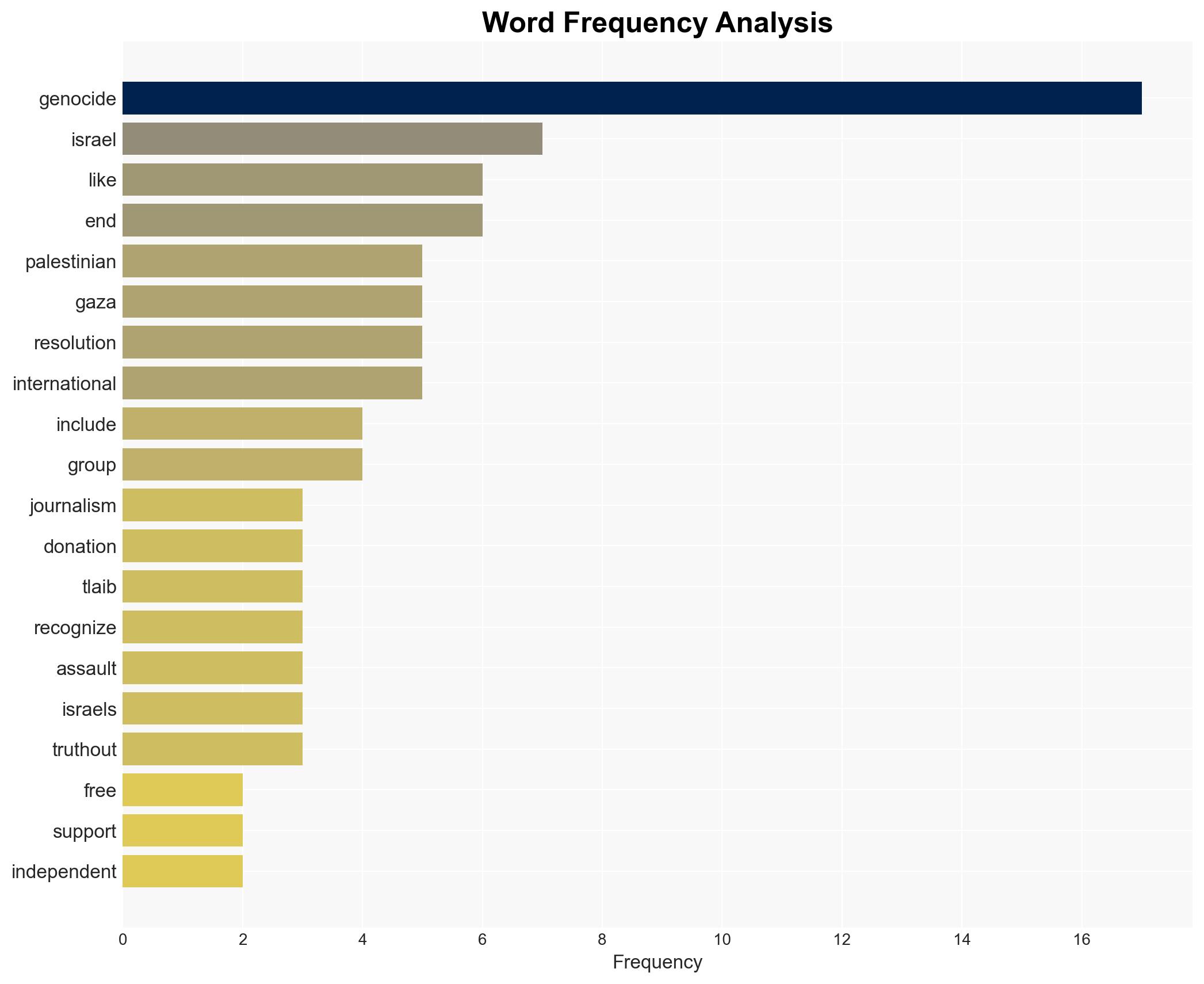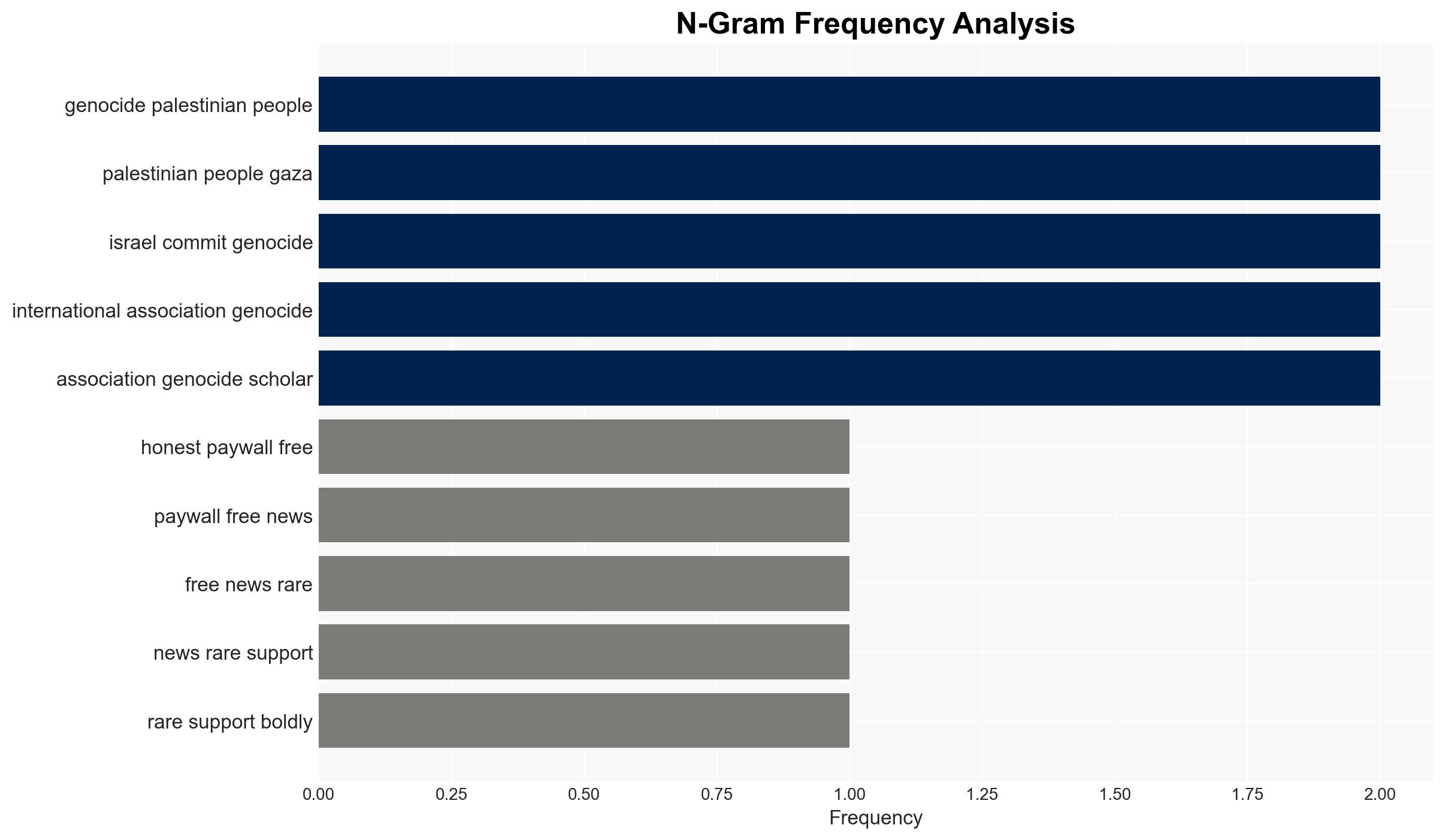Tlaib Introduces Resolution to Recognize Gaza Genocide Call for Arms Embargo – Truthout
Published on: 2025-11-14
AI-powered OSINT brief from verified open sources. Automated NLP signal extraction with human verification. See our Methodology and Why WorldWideWatchers.
Intelligence Report: Tlaib Introduces Resolution to Recognize Gaza Genocide Call for Arms Embargo – Truthout
1. BLUF (Bottom Line Up Front)
The introduction of a resolution by Representative Rashida Tlaib to recognize alleged genocide in Gaza and call for an arms embargo against Israel is a significant political maneuver with potential international ramifications. The most supported hypothesis is that this resolution aims to increase political pressure on Israel and shift U.S. foreign policy towards more critical engagement with Israel. Confidence Level: Moderate. Recommended action includes monitoring the resolution’s progress and evaluating shifts in U.S. and international policy regarding Israel.
2. Competing Hypotheses
Hypothesis 1: The resolution is primarily a symbolic gesture aimed at raising awareness and rallying support among progressive and left-wing groups in the U.S. This hypothesis suggests that the resolution is unlikely to result in immediate policy changes but serves to influence public opinion and future political discourse.
Hypothesis 2: The resolution is a strategic move to catalyze a shift in U.S. foreign policy towards Israel, potentially leading to concrete actions such as sanctions or a reevaluation of military aid. This hypothesis considers the resolution as a tool to leverage international law and human rights frameworks to pressure the U.S. government.
The first hypothesis is more likely given the current political landscape and historical precedence of similar resolutions failing to enact immediate policy changes.
3. Key Assumptions and Red Flags
Assumptions: The resolution assumes that there is sufficient political will and public support to challenge longstanding U.S. policies towards Israel. It also assumes that labeling the situation as genocide will resonate with international legal frameworks and obligations.
Red Flags: Potential bias in the sources and groups supporting the resolution, such as left-wing and human rights organizations, may limit its broader appeal. The use of emotionally charged language could polarize the debate and hinder objective analysis.
4. Implications and Strategic Risks
The resolution could escalate political tensions between the U.S. and Israel, potentially affecting diplomatic relations and cooperation in other areas. It may also trigger cyber and informational campaigns from both pro-Israel and pro-Palestinian groups, leading to increased misinformation and propaganda. Economically, any sanctions or embargoes could impact defense industries and bilateral trade.
5. Recommendations and Outlook
- Monitor the resolution’s progress in Congress and assess shifts in public opinion and political alignment.
- Engage with international allies to gauge their responses and potential support for similar measures.
- Best-case scenario: The resolution fosters constructive dialogue and leads to peaceful conflict resolution efforts.
- Worst-case scenario: The resolution exacerbates tensions, leading to diplomatic fallout and economic repercussions.
- Most-likely scenario: The resolution raises awareness but results in limited immediate policy changes.
6. Key Individuals and Entities
Rashida Tlaib, Greg Casar, Ilhan Omar, Alexandria Ocasio-Cortez, Amnesty International USA, Democratic Socialists of America, International Association of Genocide Scholars.
7. Thematic Tags
Structured Analytic Techniques Applied
- Cognitive Bias Stress Test: Expose and correct potential biases in assessments through red-teaming and structured challenge.
- Bayesian Scenario Modeling: Use probabilistic forecasting for conflict trajectories or escalation likelihood.
- Network Influence Mapping: Map relationships between state and non-state actors for impact estimation.
- Narrative Pattern Analysis: Deconstruct and track propaganda or influence narratives.
Explore more:
National Security Threats Briefs ·
Daily Summary ·
Support us
·





